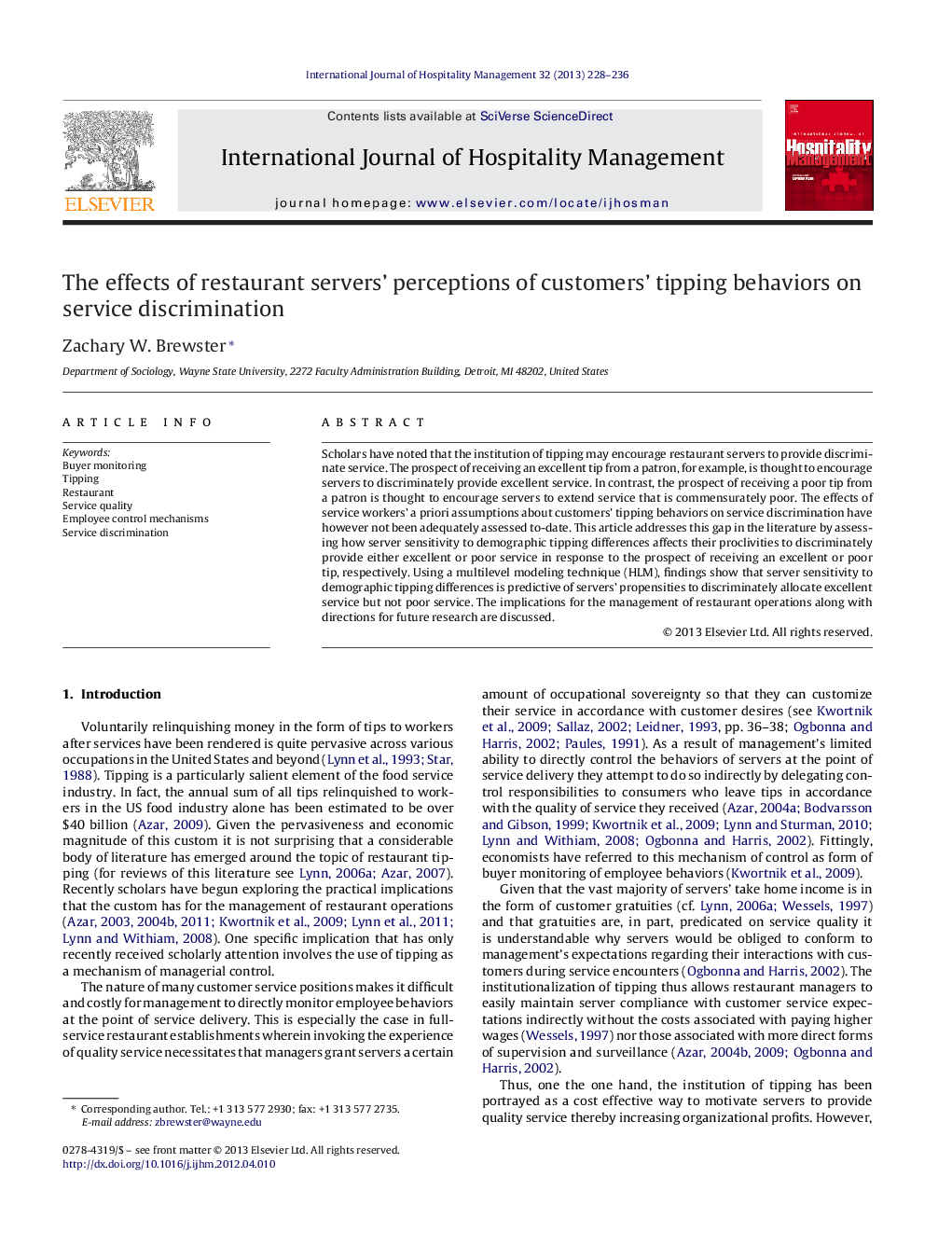| Article ID | Journal | Published Year | Pages | File Type |
|---|---|---|---|---|
| 1009742 | International Journal of Hospitality Management | 2013 | 9 Pages |
Scholars have noted that the institution of tipping may encourage restaurant servers to provide discriminate service. The prospect of receiving an excellent tip from a patron, for example, is thought to encourage servers to discriminately provide excellent service. In contrast, the prospect of receiving a poor tip from a patron is thought to encourage servers to extend service that is commensurately poor. The effects of service workers’ a priori assumptions about customers’ tipping behaviors on service discrimination have however not been adequately assessed to-date. This article addresses this gap in the literature by assessing how server sensitivity to demographic tipping differences affects their proclivities to discriminately provide either excellent or poor service in response to the prospect of receiving an excellent or poor tip, respectively. Using a multilevel modeling technique (HLM), findings show that server sensitivity to demographic tipping differences is predictive of servers’ propensities to discriminately allocate excellent service but not poor service. The implications for the management of restaurant operations along with directions for future research are discussed.
